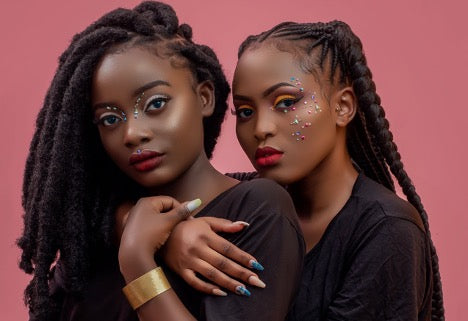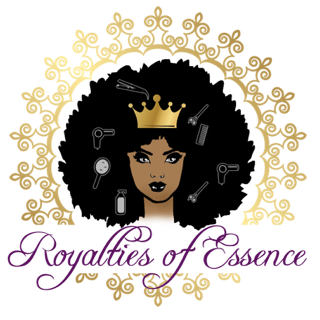
Protective Hairstyles for Natural Hair

Protective Hairstyles for Natural Hair
Are you looking for more protective hairstyles for natural hair? We’ve got you covered! Protective hairstyles are one of the most common and effective ways to achieve longer, stronger, healthier hair. Natural hair is the most versatile hair, and there are so many protective styles and looks naturalists can wear to achieve longer hair. Not only can a protective style help hair to get longer, but it also protects hair from damage and helps it to maintain hydration. Beyond the hair health benefits it can provide, protective styles are also fun to wear and can save you a lot of time on your hair routine. If you’re looking for protective hairstyles that best support healthy hair, this guide will help you!
Benefits of Protective Styling
A protective style is any hairstyle that keeps your ends tucked away to protect your hair and minimize damage. Protective styles protect your natural hair from tugging, pulling, and breakage, due to manipulation, heat, and environmental factors. Extreme temperatures in the summer and winter can cause damage to the hair, so protective styles are perfect in any season. Protective styles are perfect for maintaining your hair while it is getting longer. In addition to retaining length, some added benefits include protecting edges from thinning, maintaining moisture, and the styles require low maintenance.
Rules of Protective Styling
How Long To Wear a Style
Typically, protective styles are worn for at minimum a few days, up to about 8 weeks. We recommend keeping most styles in for about 6 weeks. You won’t want to keep a style in for longer than two months because your hair can become dehydrated and cause you to have increased scalp tension. For this reason, it’s important to learn how to moisturize your scalp properly to maintain healthy hair.
How To Prep Your Hair
Before installing any type of protective style, you have to make sure that your hair is in optimal health before tucking it away for a while. Here are some steps you should take to prepare your natural hair before styling it:
Trim: In preparation for your new look, make sure you get rid of any split ends. Even if you haven’t noticed extreme damage to your ends, getting a trim every 3 or so months is an important healthy hair habit. This trim is going to promote healthy hair before your style is installed. If your hair is not trimmed, it can cause more breakage and damage to go up toward the shaft of the hair. Getting regular trims will not only look and feel good, but your hair will be easier to detangle.
Wash: To get the most out of a protective style, your hair must be thoroughly washed, conditioned, and moisturized before the style is installed. Our Rosemary Mint Strengthening Shampoo is great for nourishing and cleansing hair. This Bamboo & Pomegranate Strengthening Shampoo is infused with organic seed oils and bamboo to bring your hair back to life, just in time for your new protective style.
Deep Condition: On wash day, don’t forget to incorporate a deep conditioning treatment to ensure your hair is as strong and healthy as possible before putting the style in for the next few days or weeks.
Maintaining Your Protective Style
After the time you probably spent in a chair and the money you might have to spend getting a new protective style installed, you will want to get the most out of your new do! To keep your look hydrated, healthy, and fresh, you will need the right products and to protect your hair at night. Wear a headscarf or use a silk pillowcase. Tie a satin or silk scarf around your head to maintain moisture and keep the style frizz-free. Each morning, you will need little product and manipulation to get ready for your day. To hydrate your scalp, use our Triple Nourishing Scalp Oil. This hair strengthening oil promotes healthy hair and nourishes hair follicles.
10 Styles
When choosing the right style, you will want to consider your hair type, hair length, and hair texture. Type 4 hair is more fragile, and prone to breakage, so choosing the right protective style is key to helping your hair get longer and stay healthy. Those with less coily hair may not experience the same amount of breakage from certain styles like braids, which may pull on the scalp and edges. Knowing your hair type, identifying your hair goals, and figuring out what you might be doing while wearing the style will help you pick the right one. Here are the many styles to choose from based on your hair goals and needs:
- Cornrows
Cornrows are a popular and versatile protective hairstyle that can be worn on all hair types and lengths. Cornrows are a style of hair braiding in which the hair is braided flat to the scalp in vertically sectioned rows. If you want to have some fun with it, you can add hair extensions and create different design patterns when braiding hair. There are so many ways to have some fun with braided hairstyles for natural hair!
- Top Knot
The top knot bun is one of the easiest protective styles to achieve and can be styled in so many different ways. Add some fun to the high bun style by adding a side swoop bang or creating one braid, before putting it up into a bun. You can also add extensions to your hair to create a more full and dramatic look.
- Bantu Knots
Bantu knots are continuing to be reinvented by black women around the world, on red carpets and fashion runways. They’re styled by sectioning your hair and twisting those sections around themselves, forming tiny knots all around the head. You can wear this protective style for up to 2 weeks. After you take them out, you can also wear your curls as a style, known as a “Bantu knot out.” To get perfectly styled Bantu knots, we recommend our Aloe Vera & Flaxseed Hairstyling Gel.
- Box Braids
One of the most popular protective braided styles you’ve probably heard of is box braids. They are achieved by sectioning the hair off into square shapes, then braiding it. They are most often installed using extensions. This style can be worn in all types of lengths, sizes, and colors. With the right amount of care, this style can last up to 8 weeks. To keep your hair hydrated and healthy while it's in these natural hair braids, use a hair strengthening oil.
- Crochet Braids
Crochet braids are also known as latch hook braids, which are a special method of braiding that builds off of hair that’s been cornrowed, to which extensions are added, using a crochet needle. There isn't much you can’t do with this protective style – you can switch up the length, color, style, and texture. These protective braids are quick to install and are one of the most maintainable protective styles. The many different style options that can be worn on crochet braids include crochet twist out, crochet Senegalese twists, crochet box braids, faux locs, water wave crochet braids, and straight crochet braids.
- Senegalese Twists
Senegalese Twists, also known as ‘rope twists,’ are two strands of hair wrapped around each other to create a twist. Most people like to add hair extensions to help maintain the style and protect their natural hair as much as possible. You can also switch up the twists by wearing them not only free-flowing but in a bun, ponytail, and a half up half down style. This is one of the most versatile protective hairstyles for natural hair!
- Pineapple
The pineapple is one of the quickest and easiest protective styles. It is often used as a method to protect your curls while you sleep, but it can also be worn as a style. Gather all your curls on top of your head and tie your hair loosely, using a wrap or hair tie. For those with shorter hair, you can achieve this look by dividing your hair into two or more sections before pineappling.
- Wig
Wigs are a great protective style with low manipulation and so much versatility. You can try out so many different cuts and colors. To encourage the health of your natural hair underneath, be sure to check out our Rosemary Mint Collection. The products are infused with biotin and natural ingredients to promote shine and longer, stronger hair. Human hair wigs can be an investment but can last you over a year, depending on how often you wear them.
- Flat Twists
This style is perfect for retaining texture and moisture. Not only are twists a great protective style that promotes healthy hair, but they’re also super cute to wear on its own and as a style, after you’ve taken them out, known as a “twist out.” Before twisting your hair, apply our Aloe Vera & Flaxseed Hairstyling Gel. Grab a section of hair, and split it into two pieces of hair, stretch the hair out, and twist it from the root to your ends. Twirl the ends into a curl with your finger to seal the twists.
- Faux Locs
Faux Locs are one of the more recently popular protective styles, worn by celebrities like Ciara and Rihanna. This style is achieved by braiding your natural hair or installing box braids and then wrapping hair extensions around each braid. You can also achieve faux locs using the crochet method, by attaching premade locs to your cornrows. The crochet method is much quicker, but the first method of achieving faux locs will give you a more realistic look.
Start Styling
So, now that you know all the best protective styles for natural hair, you’re ready to try them out! Choose the style that is best for your hair type or try out a few until you figure out what works best. Then, try our natural & organic haircare products to protect your hair and maintain the style. Once you start incorporating these protective styles, your curls will thank you for it.
